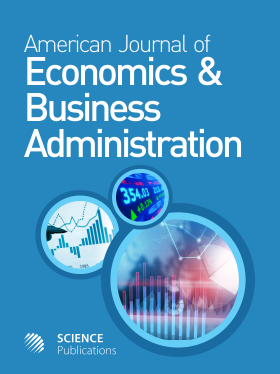Public Funding and Affordability of Substance Abuse Treatment Services
- 1 University of Houston-Downtown, United States
- 2 LLC 7322 SW Freeway, United States
Abstract
Problem statement: Substance abuse continues to cause significant personal, social and economic costs to the US economy. In order to decrease these costs, the goal of the US public health policy has been to increase access to drug treatment services by increasing their affordability. Government policy makers try to achieve such a goal by providing direct public funding to private non-profit Drug Treatment Providers (DTPs) via grants and earmarks. It is argued that public funding will allow DTPs to offer lower prices for treatment services thus making them more affordable to people who need them. Although many DTPs depend heavily on government grants, there is little research examining the effect that public funding has on the affordability of treatment services. This study examines whether public funding increases the affordability of treatment services or whether instead there is a “flypaper effect” of such aid. The flypaper effect occurs when an exogenous aid sticks where it hits and thus fails to have the intended effect. Approach: This study examines the degree to which the price of treatment services is a function of public funding, net of DTP size, local socioeconomic conditions and state policy, using Hierarchical Linear Modeling (HLM) to adjust for endogeneity resulting from clustering of cases. Data from a 2009 national cross-sectional data set of DTPs are used for analysis. Results: The results show that when the data are analyzed using linear regression models, DTPs that receive public funding are statistically more likely to offer lower prices for their services. However, when Hierarchical Linear Models (HLM) are used, this effect diminishes and even disappears in some cases. Conclusion/Recommendations: The results of this study suggest that in order to maximize the benefits of the limited public funds available and make drug treatment services more affordable, public funds need to have stronger regulatory oversight as to ensure that these limited funds increase treatment affordability as intended.
DOI: https://doi.org/10.3844/ajebasp.2012.72.83

- 5,041 Views
- 3,323 Downloads
- 0 Citations
Download
Keywords
- Substance abuse
- Drug Treatment Providers (DTPs)
- flypaper effect
- drug treatment services
- Hierarchical Linear Models (HLM)
- treatment affordability
